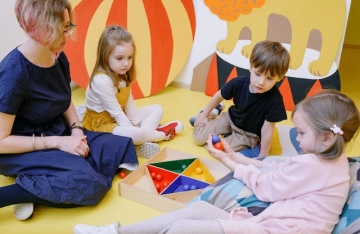Learning is the lifeblood of a fruitful career. It is neither a personality trait nor a gift. It takes humility to admit that we have much to learn, but this realization can be a catalyst to the kind of lifelong learning that helps us improve, thrive, and contribute in a way that is deeply meaningful to ourselves and others. Reading information prepares your mind, but are you actually utilizing it in your daily life.

Education, or rather the lack of it, has been blamed for all sorts of evils in our society for hundreds of years. We have established institutes like the IIT’s, IIMs, law schools and other institutions of excellence; students now routinely score in excess of 90% marks, but implementing the knowledge that students gain, is miniscule. Rote learning still plagues our system, student study only to score marks in exams, and sometimes to crack exams like IIT JEE, AIIMS or CLAT. Our education system is geared towards teaching and testing knowledge. Students focus on cramming information and the best crammers are rewarded by the system. This is one of the fundamental flaws of our education system. No one is assessing the students in order to encourage them to make their own mark in front of world.
Also learn how to recovery from addiction
So what should be the changes in the education system that makes it more attuned to the future rather than existing in the past? What needs to be fixed and what should stay?
Focus on skill based education: “Give a man a fish and you feed him one day, teach him how to catch fish and you feed him for a lifetime.” Teaching skills to students, means you enable him for a lifetime. The education system should shift its focus to skill-based learning. More practical learning where you learn through experimentation and activities.
Re-define the purpose of the education system: We may have the most number of engineering graduates in the world, but that has not translated into much technological innovation within the country. The goal of our education system should be realigned to create entrepreneurs, innovators, artists, scientist, thinkers and writers who can establish the foundation of a knowledge-based economy, than call centers that work on cost arbitrage.
Reward creativity, original thinking research and innovation: Memorizing is not a learning process. Our education system is designed to reward only the crammer. It rarely rewards what deserves highest academic accolades. Deviance is discouraged. Our testing and marking system need to be built to reorganize original contributors, in form of creativity, problem solving, valuable original research and innovation. If we could do this successfully our education system would have changed overnight.
Vocational and skilled-based course: Some kids learn faster, some are comparatively slow. Some people are visual learners, some are auditory learners; every individual has their own inherent ability to learn. Thus adding a vocational course helps students to explore more. The CBSE board offers 40 vocational courses consisting of 100 subjects at senior secondary level in more than 630 affiliated schools in India. This little step helps students a lot, like the study material for class 10 CBSE help student in board exams. CBSE designs the study material so well that it helps students in every manner. Student must learn for knowledge not just for the scores. Learning, after all is about
improving the way you live and how you make decision. It would be foolish to collect knowledge without implementing it.




